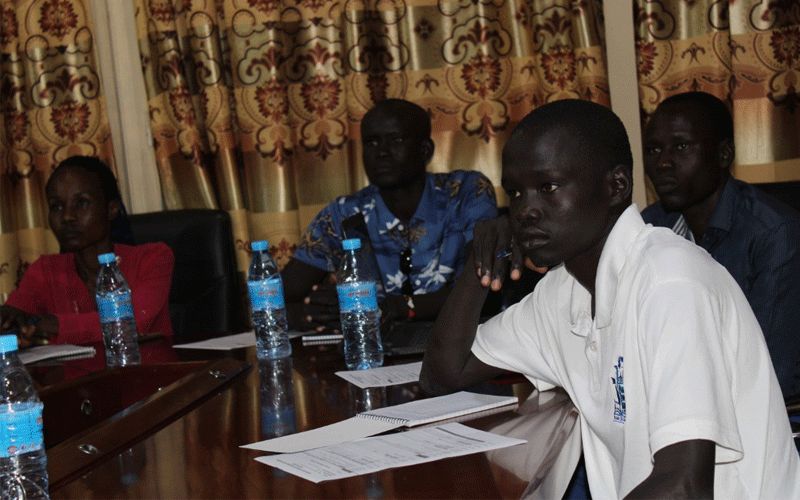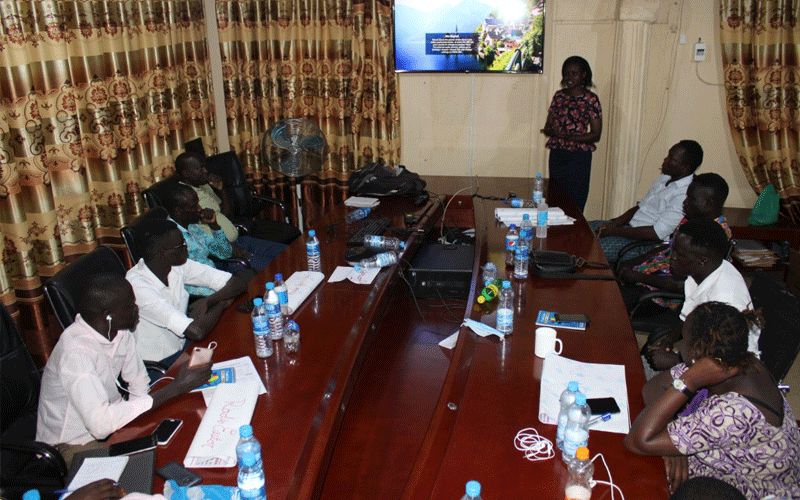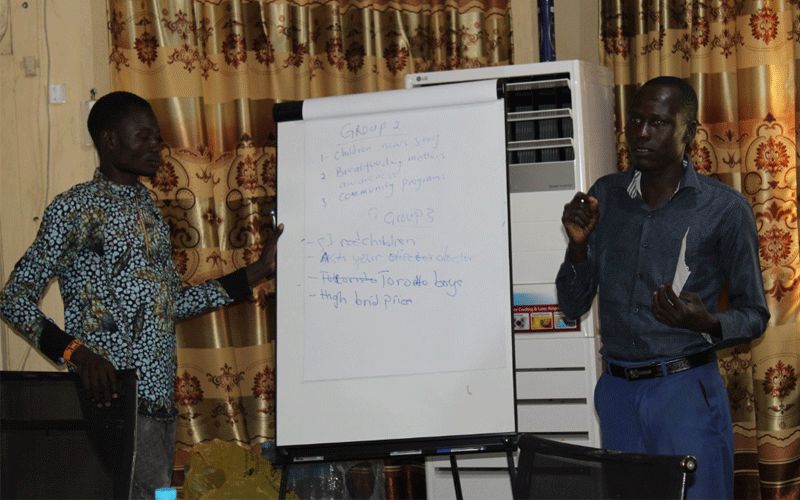She added, “The literacy rate is very low and in deep rural areas where we reach, even getting graduates is not easy.”

To boost competence in the journalism field, Ms. Ajith said, “Most of the stations have six months training on the basics of journalism so that we introduce the recruits into the system and upgrade them to professionalize their work as some of them are volunteers.”
In an interview with ACI Africa, Fr. Santino Lounoi who was one of the facilitators of the journalists said he observed a desire in the CRN journalists to learn new skills.
“They showed that they are willing to learn and I think they have a lot of potential,” said Fr. Santino who is the Director of Radio Emmanuel, the radio for South Sudan’s Torit Diocese.
(Story continues below)
He continued in reference to CRN journalists who took part in the six-day training, “They are of different categories: some of them are fit and others still need more training.”
Recalling his interaction with the journalists, Fr. Santino said, “What I am seeing is that their knowledge gap is mainly in practical; they have the theory but need to apply it to practice.”
“Some of them are those who did not go to journalism school; I noticed some have diplomas not in the field of media,” the South Sudanese Cleric said, and added, “From what I have seen some of the journalists are those who have not worked long for CRN.”

The other challenge facing journalism in the country, according to Fr. Santino, is the switching of career to the corporate field, which he said was better paying.
“There are mixed reasons why journalists leave to work in other institutions. In South Sudan, there is a shortage of skilled personnel and when NGOs see somebody working in the media, they come and take them for better pay,” Fr. Santino said.
He explained, “The biggest challenge we have is lack of money to pay the journalists because here we are dealing with community radios that do not generate a lot of money.”
Fr. Santino applauded AMECEA for sponsoring the training saying in times of conflict, it is imperative that journalists are equipped with knowledge to highlight issues affecting the communities.
“As journalists, with a bad economy and many other things happening, we have to give people a kind of hope. We have to promote solution-based journalism, helping the people in difficulties to be able to go around with the difficulties until things improve in future,” Fr. Santino told ACI Africa September 29.












